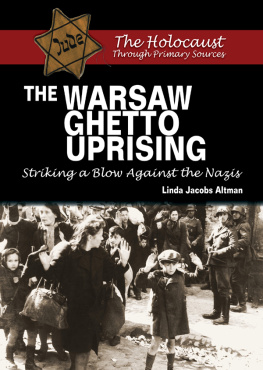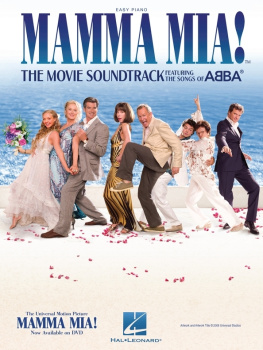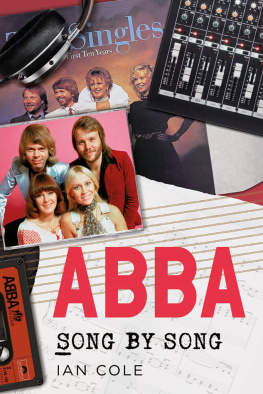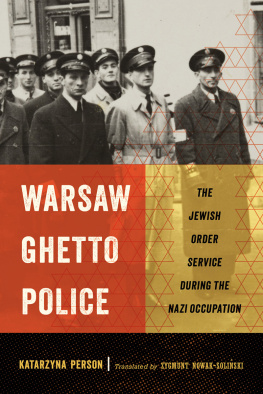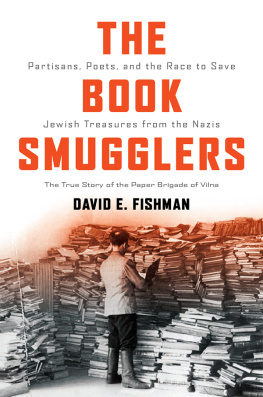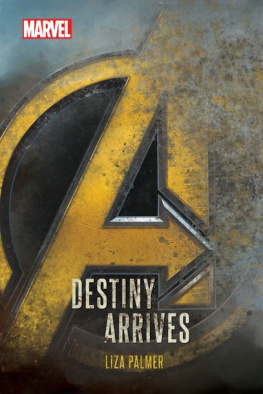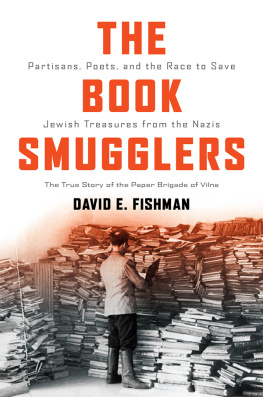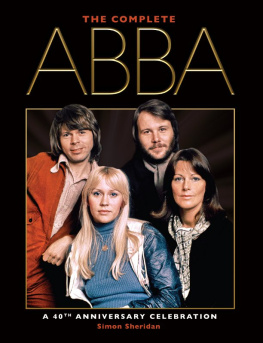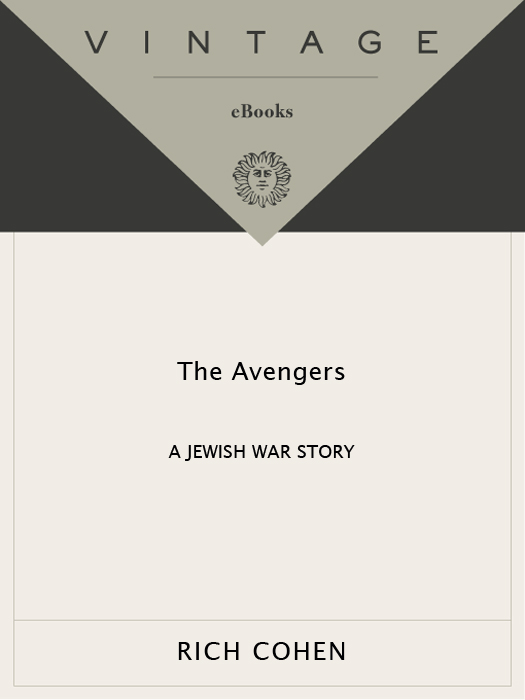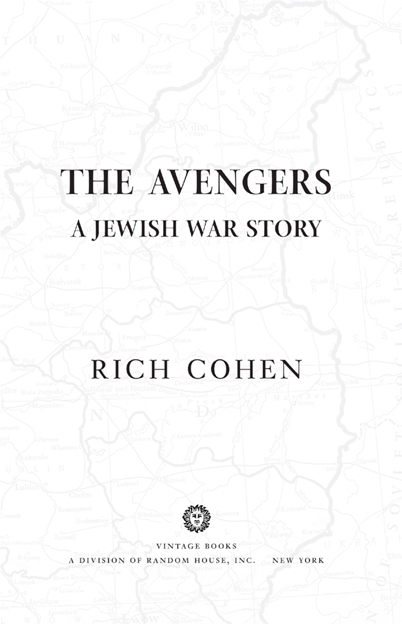Acclaim for Rich Cohens
THE AVENGERS
Vivid, generous writing that makes the past spring to life.
The Boston Globe
Cohen has provided an uncommonly accessible and captivating glimpse into a too-little known world of great courage and coarse, brutal life and death.
Minneapolis Star Tribune
This is one of the most stirring books I have ever read.
James Atlas
A remarkable story by a remarkable writer. This is one of the great books about a period of time that never goes out of our consciousness. A terrific read. I love this book.
Larry King
Powerful and compelling Cohens writing is vivid and crisp.
The Miami Herald
A stirring tale of Jewish resistance.
The Arizona Republic
ALSO BY RICH COHEN
Tough Jews: Fathers, Sons, and Gangster Dreams
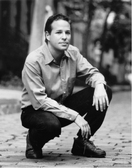 Rich CohenTHE AVENGERS
Rich CohenTHE AVENGERSRich Cohen, the author of Tough Jews, has also written for The New Yorker and The New York Times Magazine, among many other publications, and is a contributing editor at Rolling Stone. He lives in New York City.
FIRST VINTAGE BOOKS EDITION, OCTOBER 2001
Copyright 2000 by Rich Cohen
All rights reserved under International and Pan-American Copyright Conventions. Published in the United States by Vintage Books, a division of Random House, Inc., New York. Originally published in hardcover in the United States by Alfred A. Knopf, a division of Random House, Inc., New York, in 2000.
Vintage and colophon are registered trademarks of Random House, Inc.
The photographs on are by Hayim Goldgraber.
All other photographs are used courtesy of Rich Cohen.
The Library of Congress has cataloged the Knopf edition as follows:
Cohen, Rich.
The avengers / Rich Cohen.
p. cm.
eISBN: 978-0-8041-5120-7
1. World War, 19391945Jewish resistance.
2. Holocaust, Jewish (19391945)Biography.
3. Kovner, Abba, 19181987. 4. Korchak, Reizl, 19211988.
5. Kempner, Vitka. I. Title.
D810.J4 C585 2000
940.5318dc21 00-021062
Author photograph Sara Barrett
www.vintagebooks.com
v3.1
For Ellen Cohen
CONTENTS
I T IS LIKE no Holocaust story I have ever heard. There are no cattle cars in it, and no concentration camps. It takes place in underground hideouts and forest clearings, and in the ruins of German cities after the Second World War.
I first heard the story in 1977, when my family visited Israel, a trip partly chronicled in the photo album my mother put together when we returned to our house in suburban Chicago. The pictures show a smiling family backed by the usual landmarks: Western Wall, Dead Sea, Masada. I was ten years old. My brother was fifteen. In many photographs, he wears black, sun-absorbing concert T-shirts. In one, he makes a muscle. My sister, who would soon turn eighteen, looks bored, like every minute on this trip is another party missed. There is a shot of my father leaning on an Israeli tank, looking into the distance, as if scanning for Babylonians. My mother was taking the pictures, or else holding her hands over her face so no pictures of her could be taken. When it comes to photos, my mom is a classic case of dish-it-out-but-cant-take-it. Viewed together, these pictures record a middle-class Jewish pilgrimage, a family rite, Christmas in the Holy Land: kids squinting through the glare, searching out a lost connection, a link to a homeland that, after all that air travel, feels like just another country.
If you want to know about the rest of our vacation, those moments when the camera stayed in the bag, feuds, quarrels, threats and fits, you must dig deeper, beneath the old diplomas and hockey-mom patches, to the frayed pages of The Cohen Daily News, a newspaper edited and published (by me) during the three weeks we spent in Israel. The paper, which was not really a daily, was handwritten on yellow sheets torn from my fathers legal pads. Held together by a clip, the paper was passed from family member to family member. The stories, printed under smudged headlines, set down even the most scandalous rumors. Below my brothers byline ran a piece about my parents: Herb and Ellen Fool Around. The article talked of a gleam in my dads eye, of noises on the other side of a wall, of disheveled hair, of laughter. Ellen was seen under the covers wearing a big smile, the story read. Talk has it, that was all she was wearing.
Reviews ran in the back of the paper, including my dads musings on a restaurant in Haifa where every dish was stuffed. Not only is the food filling, he wrote. It is stuffing. The last issue of The Cohen Daily News, published as my parents packed, tells of a trip we made to a kibbutz north of Tel Aviv, a visit with relatives once thought lost in the Holocaust. In just a few paragraphs of my sisters blocky print, the story recalls the most important evening of our vacation, our first meeting with the Avengers, veteran fighters who slogged out World War II in the gloomy forests of Eastern Europe, later fought for Bible-bleached Middle Eastern wastes, and were the kind of people who inspired Joseph Goebbels to write in his diary: One sees what the Jews can do when they are armed. In a dozen sentences, my sister set down the moment that fused the lost connection and made the homeland feel like homean electric moment that lurks just beyond the photos in my mothers album.
We drove to the kibbutz by rental car. The directions given to us by the man at the hotel were useless. Israeliswho knows whygive directions that are both clipped and broad, like every place is the same place, like any street gets you there: only a fool can miss it. OK, you come out on the road and you are going, the man said, waving a hand. You are going and going and going all the time. You are seeing a bridge but you are not going there because you are still going all the time. Then you see a tree, a building, and there you are.
We took a map. I had it on my knees. On family trips, I was the navigator. I was fascinated by maps. This one showed a sliver of land along the sea. Brown, blue. The names of the towns were familiar from religious school: Yafo, Jericho, Beersheba. Looking at the map, I began to sense just how abbreviated Israel is. It seemed the map was actual size. Picking out a town, I would say, We should be in Netanya in two hours. And just as I was saying this, my father would gear down and say, Here is Netanya.
We turned onto a road that ran through open fields. Little cars would dart up behind us flashing their lights. You could see them in the rearview mirror. Rolling down his window, my father waved them on. And off they would drive, bounding ahead, trailed by dust. We were going to see Ruzka Korczak; we had been sent by my grandmother. In 1920, my grandmother emigrated to New York from a small town in Poland, where she had nine siblings and an infant niece, the daughter of her oldest brother. Though my grandmother was to be just the first of the children to make the trip, the family ran out of money. And the seasons changed. And the politicians fell. And the War started. Several years after Nazi Germany collapsed, my grandmother got a letter from a woman named Sara, who came from her town in Poland. Sara now lived in Israel, where she searched for survivors, trying to put them back together with lost family. She met ships, studied dockets, interviewed passengers. Early in our vacation, we had lunch with Sara. Even if she had something of interest to say, I missed it. Her husband was named Shlomo; I could not move much beyond that.


